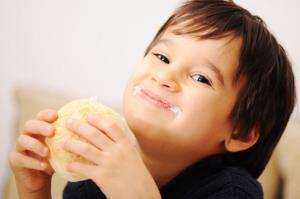
As long as 30 years ago, Dr Ben Feingold proposed a diet free of additives and other substances, including a group of naturally-occurring chemicals called salicylates, to calm behaviour in children.
The extent and nature of the link between hyperactivity and diet is still being debated and not all scientists or doctors are convinced of the great effect of diet.
However, parents of ADHD kids are often convinced that they can see a difference in their children’s behaviour, directly related to what they eat. Many will tell you about the negative effect that sugar, artificial or synthetic colourants, antioxidants, certain preservatives and other artificial ingredients can have on their children’s conditions.
Differing opinions
Pro diet and ADHD
Heather Picton, CEO of ADHASA, advises on diet and ADHD, and she firmly believes that it can make a crucial difference.
She says, “ADHD children often improve with a healthier eating lifestyle. It is impossible to predict the extent to which a child will benefit, and in which area improvements will take place – it could, for example, be in behaviour, concentration, general health and/or social interaction. Sometimes change is dramatic; sometimes it can hardly be noticed.”
She adds, “Diet and supplementation can individually yield positive results but in my experience the best improvements are attained when diet and supplementation are used in combination with each other.”
Heather advises clients to supplement with essential fatty acids (EFAs) Omega 3 and Omega 6, and with the vitamins and minerals needed to metabolise them.
Dr Johan Erasmus, a developmental paediatrician with a special interest in ADHD says, “The Oxford Study shows that in up to 60% of children, Omega 3 will have a positive effect on performance, reading and spelling. It is probably less effective on focus and planning, but generally speaking, supplementation would be beneficial, even for adults.”
Additionally, they are encouraged to avoid foods that prevent the body from using EFAs. That means goodbye to all artificial colourants, artificial flavourants and many preservatives, which in effect means that most processed foods, cordials and fizzy drinks, store-bought cakes and pies, are off the menu. In some cases, Heather also recommends temporary avoidance of natural foods that contain high levels of salicylates.
Diet might help, but there are other things to consider
Dr Erasmus, a developmental paediatrician in private practice in Pretoria, has a special interest in ADHD, and has treated many children with the condition. He believes that cutting out the “baddies” is worth trying, but is skeptical of diet modification as a total solution.
He says, “Approximately 30% of kids will have negative effects if they eat the wrong foods, particularly colourants. Avoiding such foods generally has benefits in terms of behaviour and is generally beneficial for good health.”
He adds that there is evidence that ADHD children have a higher proportion of allergies than the normal population. He says, “Allergies are an important factor to consider, as they can aggravate concentration problems. For instance, sinus and adenoid problems can result, which means that children don’t sleep well and can’t concentrate.”
Glucose levels
As important, Heather believes, is the need to feed the child a diet that maintains stable blood glucose levels. That means plenty of slow-release carbohydrates, and very few high GI carbs like white bread and sugar.
Eat throughout the day
It’s important to make sure that the child has small portions of protein throughout the day, too. Eating three balanced meals a day, as well as healthy snacks like plain popcorn or biltong between meals and, sometimes, a small snack before bed helps to keep blood glucose stable and maintain concentration.
A good breakfast
Start the day with a balanced breakfast. Heather suggests apple slices, rolled oats porridge cooked in milk, scrambled egg on toast with a slice of tomato or cucumber, or a boiled egg with Rye-vita. It’s good advice to avoid highly-processed foods and refined carbohydrates. Focus on complex carbohydrates such as whole grains and vegetables, and make sure that your child gets enough protein in his diet.
Warning labels
Heather Picton advises you to read labels, and avoid:
- synthetic colourants
- synthetic flavourants
- synthetic antioxidant preservatives, eg EDTA, BHA, BHT, TBHQ
- calcium propionate, benzoic acid, benzoates, sulphur dioxide, sulphates, sulphites.
- MSG (Monosodium Glutamate)
Resources:
See the ADHASA Food List for a more comprehensive list.
Contact ADHASA (ADHD/Hyperactivity Support Group) on (011) 888 7655 for more information.




 Publications
Publications
 Partners
Partners














